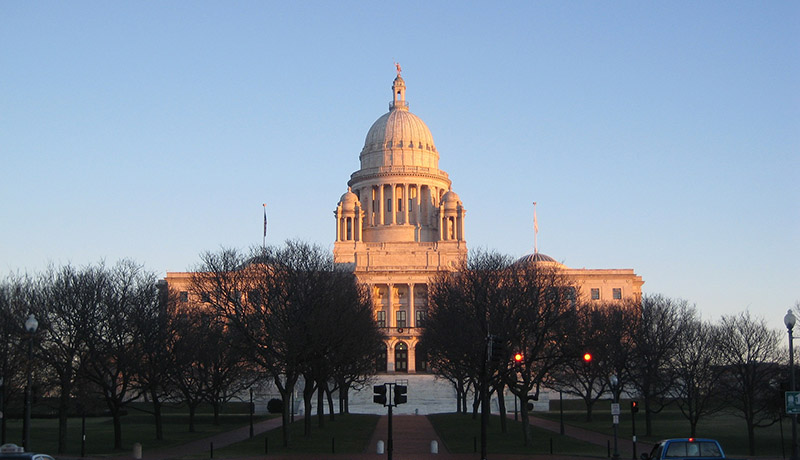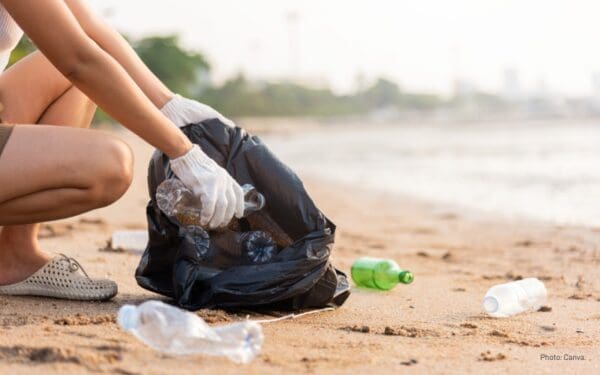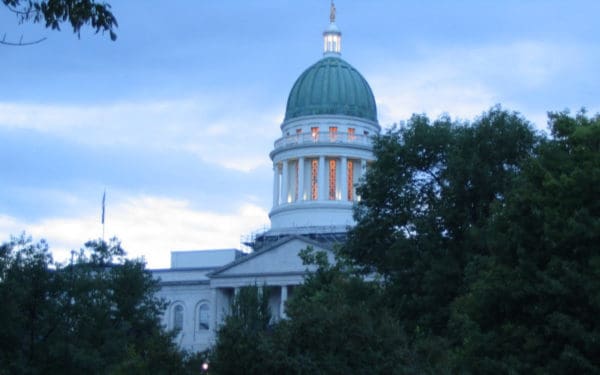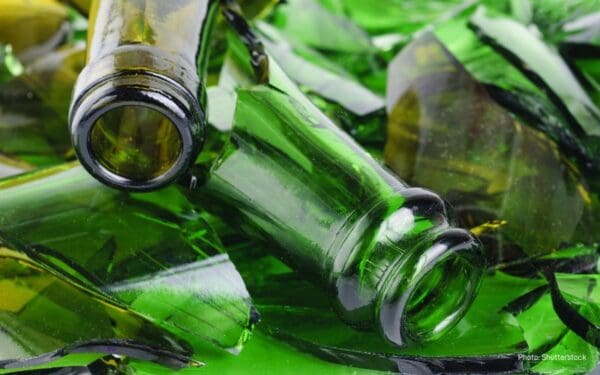
Rhode Island legislators failed to take action on important issues like the climate crisis, toxic chemicals, and plastics pollution, but we will continue working for progress.
Over the course of its session, the Rhode Island General Assembly missed opportunities to make progress on a wide range of environmental issues. Although CLF and other environmental organizations pushed for action on the climate crisis, toxic chemicals, and plastics pollution, no substantial new laws were enacted. It was not a total loss, however, as we were successful in preventing passage of some harmful measures.
The reality is, good bills can sometimes take years to pass – and we don’t give up easily. Even when legislative sessions don’t go our way, we take the opportunity to discuss environmental matters with legislators and policy makers, raise awareness among constituents, and spread our message more widely. You play a critical role in helping us keep the drumbeat going – as you read the wrap-up of this year’s session, remember, every call you make, every petition you sign, and every email you send matters. Thank you.
No Action on Climate Crisis
For the second year in a row, the General Assembly failed to pass the Global Warming Solutions Act, a bill that would make Rhode Island’s climate goals mandatory and enforceable. We were fortunate to have strong sponsors in both chambers: Representative Christopher Blazejewski and Senator Dawn Euer both championed this necessary bill. While Governor Raimondo committed to supporting mandatory, enforceable carbon emissions reductions during her reelection campaign, this never translated into support for the bill. Without legislation to give teeth to our climate goals, we have no way to ensure that our government is taking the swift, meaningful action needed to cut our state’s emissions – something that every New England state must be focused on if we are to avoid climate catastrophe by 2050. We’re not giving up, however, and will continue to press for passage next year.
We also supported another strategy to reduce emissions: legislation to enable carbon pricing (contingent on passage of similar legislation in other states). While that bill also failed, there are now resources available to conduct a study on carbon pricing. We provided comments on a draft request for proposals and are cautiously optimistic that the study will be a useful tool for climate advocates.
Legislation to address the siting of solar energy projects was another important item on our agenda for this session. We want to grow the use of clean, renewable energy like solar and wind, but the current legal landscape for siting new projects does not incentivize their development in already industrialized locations like rooftops and parking lots. That means acres of forest are jeopardized instead. Despite many months of meetings convened by the Office of Energy Resources and agreement among several stakeholders, the bills stalled in committee.
Toxic PFAS ‘Forever Chemicals’ Persist
After learning about CLF’s petitions to the Department of Health to set a drinking water standard on toxic chemicals known as PFAS, legislators took matters into their own hands. They introduced a bill modeled on a recently enacted Vermont law that would mandate a drinking water standard be set to protect against our exposure to this dangerous class of chemicals. While this bill was warmly received by the House Environment and Natural Resources Committee, it did not move out of committee and a companion bill was not introduced in the Senate this year. We are grateful to Representative June Speakman for championing this issue and continue to urge the Department of Health to take prompt, meaningful action to protect public health.
Another PFAS-related bill, this one to ban the chemicals in food packaging, also died in committee. With our health at risk from these “forever chemicals” – so named because they don’t break down in the environment or our bloodstream for decades – we will keep up the fight to eradicate them.
Plastics Pollution Not Tackled
CLF served on the Governor’s Task Force to Tackle Plastics, which provided a useful forum for sharing information among stakeholders. However, the plastic bag legislation introduced at the request of the Department of Environmental Management would have done more harm than good. It would have wiped out local bag ban ordinances in communities where half a million people live, allowed thick plastic bags that local ordinances had already banned, and prevented new local ordinances from being enacted.
CLF, working closely with the Audubon Society of RI, Clean Ocean Access, and Barrington Town Council Vice President Kate Weymouth, successfully urged Senate President Ruggerio to amend his bill to respect local communities by preserving bans on both thin and thick plastic bags. Although this bill passed the Senate unanimously, it did not advance in the House.
Bills to make plastic straws available only upon request were introduced in both the House and the Senate. As originally written, the bills would have been an important first step in reducing plastic straw use and having people think about whether they really needed a single-use plastic straw. But the Senate bill was amended to allow for self-service containers — and worse — it would have prevented communities from passing stronger straw laws. Although this bill passed the Senate, the House did not act so it did not become law.
House Committee on Environment and Natural Resources Chair David Bennett introduced legislation to ban polystyrene food containers, modeled after a law recently passed in Maine. CLF and many others supported this measure. The American Chemistry Council opposed it and attempted to convince the Committee that there was no need to ban polystyrene. The American Chemistry Council instead supported a different bill that would allow plastic and polystyrene to be burned.
Numerous environmental advocates, including CLF, testified against the bill, as burning plastic and polystyrene is like incineration. While it thankfully did not become law, the Senate did pass a resolution creating a study commission to evaluate the concept. CLF will be attending those meetings to make sure the environmental harms associated with burning plastics are considered by the commission.
The Fight Goes On
CLF will continue working to pass strong environmental laws and prevent harmful bills from moving forward. While we did not see much progress this session, we hope that increasing awareness of the climate crisis, growing interest in the harms of single-use plastics, and the national attention being paid to toxic PFAS chemicals lead to progress in Rhode Island next session.
Thank you for your support and for speaking up to your legislators this session. It’s critical that they hear directly from their constituents that these bills matter. Please, stay engaged and stay active as we prepare for the work still to come.



